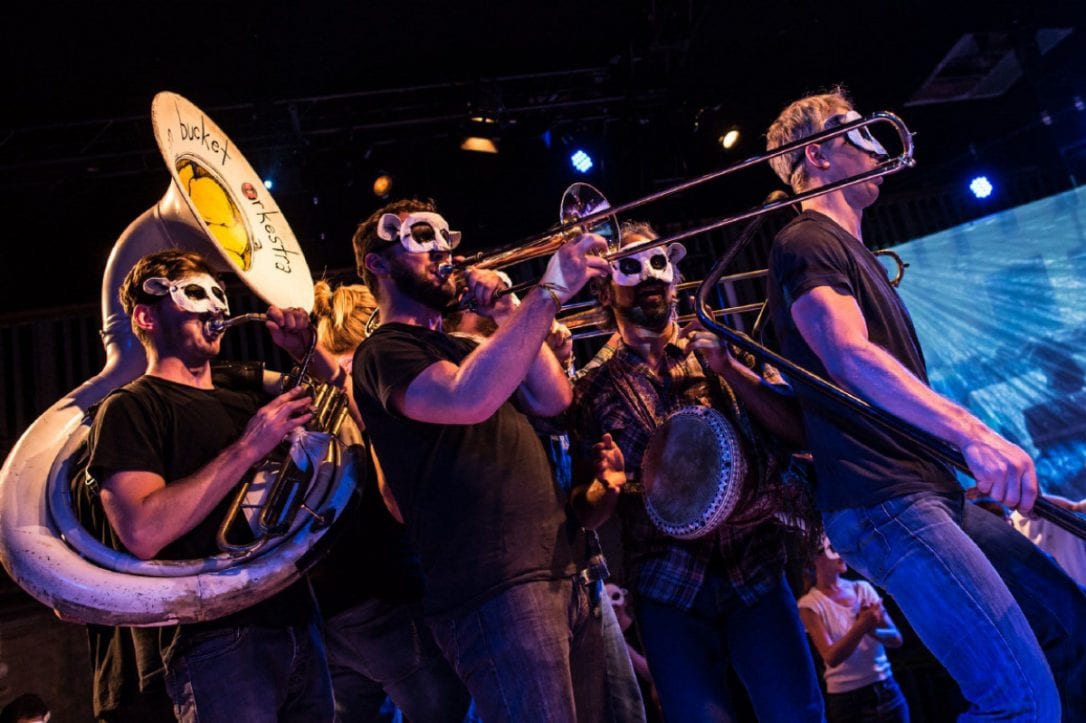Lemon Bucket Orkestra’s Counting Sheep is an immersive show that takes us through the events of the 2014 Maidan Square protests in the Ukraine.
What began as a peaceful protest against the Ukraine’s pro-Russia president Viktor Yanukovych soon soured as riot police violently attempted to suppress the protests. As so often happens in this situation, the government clamp down had the reverse effect, as hundreds of thousands took to the streets. The protests lasted throughout the winter, and resulted in over a thousand deaths (though many dispute the accuracy of this figure).
Lemon Bucket Orkestra’s production is as much a celebration of Ukrainian culture as it is a tragic reconstruction of the events surrounding the protests. We sit down to a traditional meal of potato dumplings and are encouraged to join in the folk dances.
Things change when the riot police turn up, and we find ourselves building a barricade, firing projectiles at the riot police and burying the dead.
Above our heads, projected onto three screens, images of the protests themselves are projected.
There’s a peculiar disparity between the violence on the screens and the warmth of the ensemble, which was indicative of a general feeling I had watching and participating in this show: it was hard not to feel like what we were experiencing was a pale shadow of what actually happened.
Any sense of danger the audience feel is nothing compared to what they see on the screens. And the strength of feeling and of cultural identity among the protestors is lacking in an audience of festival-goers who are total strangers to one another.
And yet instead of detracting from the value of the piece, the inevitable failure of its attempts to reconstruct this world did a lot to help me personally to understand just how horrific, but also remarkable, the events in the Ukraine were by underlining its unfathomable nature.
It’s an excellent piece of theatre – like a punk Ukrainian version of Jeremy Deller’s brilliant The Battle of Orgreave.
The final message of Counting Sheep – that the conflict is not over – serves as an unsettling reminder of how quick we are to lose interest in conflicts once the initial drama is over, and of the deep relevance and importance of this show.

